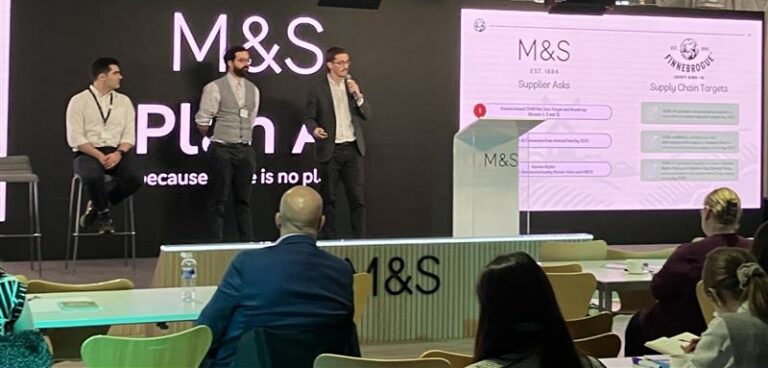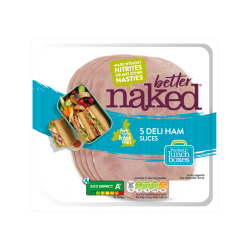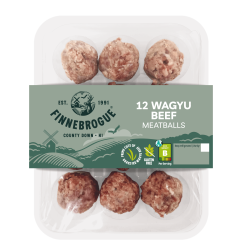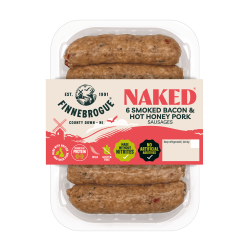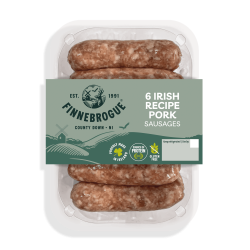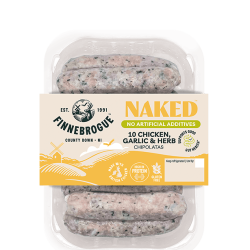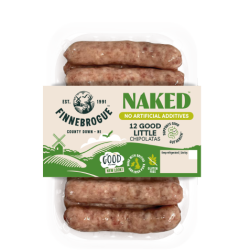In this blog post, Paul Andrews shares insights from the recent M&S Supplier Exchange, where he presented Finnebrogue’s Resilience Plan for Sustainable Sourcing.
At Finnebrogue, sustainability is more than just a buzzword — it’s a core part of our mission to create innovative, delicious products that make a positive impact on the world. One of the key ways we’re achieving this is by focusing on sustainable sourcing.
We were invited to present Finnebrogue’s Resilience Plan for Sustainable Sourcing at the prestigious M&S Supplier Exchange. This event brings together suppliers from across the food sector, offering a unique opportunity to discuss new ways to drive sustainable change within the supply chain.
The invitation came on the back of conversations I had with M&S about Finnebrogue’s approach to achieving deforestation-free supply chains. Our multi-layered, proactive strategy was well-received by M&S, who were impressed with the actions we’re taking to ensure that our ingredients are sourced responsibly and sustainably.
Finnebrogue’s Resilience Plan for Sustainable Sourcing
During the presentation, myself and Sam Turner, Finnebrogue’s Sustainability Executive, shared how Finnebrogue is leading the way in creating a more resilient and sustainable food supply chain. At the heart of our approach is the belief that sustainability is a collaborative effort. We work closely with our suppliers to ensure they’re meeting our rigorous Sustainability Expectations, which include:
1. Carbon Emissions and Reduction Targets: All our suppliers must calculate their carbon emissions and set ambitious targets to reduce them. Tackling climate change is a shared responsibility, and we’re committed to reducing our footprint across the entire supply chain.
2. Human Rights and Anti-Modern Slavery Policies: Ethical practices are a priority for us, and we require our suppliers to have robust human rights and anti-modern slavery policies in place. We believe everyone deserves to work in fair conditions, and we’ll work with our suppliers to ensure this is a reality.
3. Environmental Monitoring Systems: Suppliers are required to implement systems to monitor and reduce waste, water, and energy consumption. This ensures that environmental sustainability is embedded throughout the supply chain.
4. Deforestation-Free Targets: We are particularly focused on ensuring that commodities linked to deforestation (like soya, palm oil, and beef) are sourced in a way that protects forests. Our suppliers must meet deforestation-free targets to help preserve natural ecosystems.
Supplier Engagement Team
One of the unique aspects of our Sustainable Sourcing Plan is our Supplier Engagement Team, a working group made up of experts from our Procurement, NPD, Technical, and Sustainability departments. This team actively collaborates with our suppliers to reduce environmental and social impacts, offering guidance, support, and sharing best practices along the way.
We don’t just set expectations — we work hand-in-hand with our suppliers to help them achieve these targets, ensuring that sustainability is a core part of our entire supply chain.
Insights from the M&S Supplier Exchange
The M&S Supplier Exchange provided an invaluable opportunity to hear from other leading suppliers about their own sustainability efforts.
As we look to the future, we remain focused on continuing to build strong, resilient, and sustainable supply chains. These will play an important role as we continue to collaborate with suppliers, innovate, and drive change within the food industry.
We’re excited to continue pushing the boundaries of sustainability and working toward a greener, fairer, and more responsible food system — one ingredient at a time.

“Good supply chain resilience allows Finnebrogue to continue making innovative and delicious products, while actively meeting our sustainability targets for people and planet.”
PAUL ANDREWS, HEAD OF SUSTAINABILITY, FINNEBROGUE
